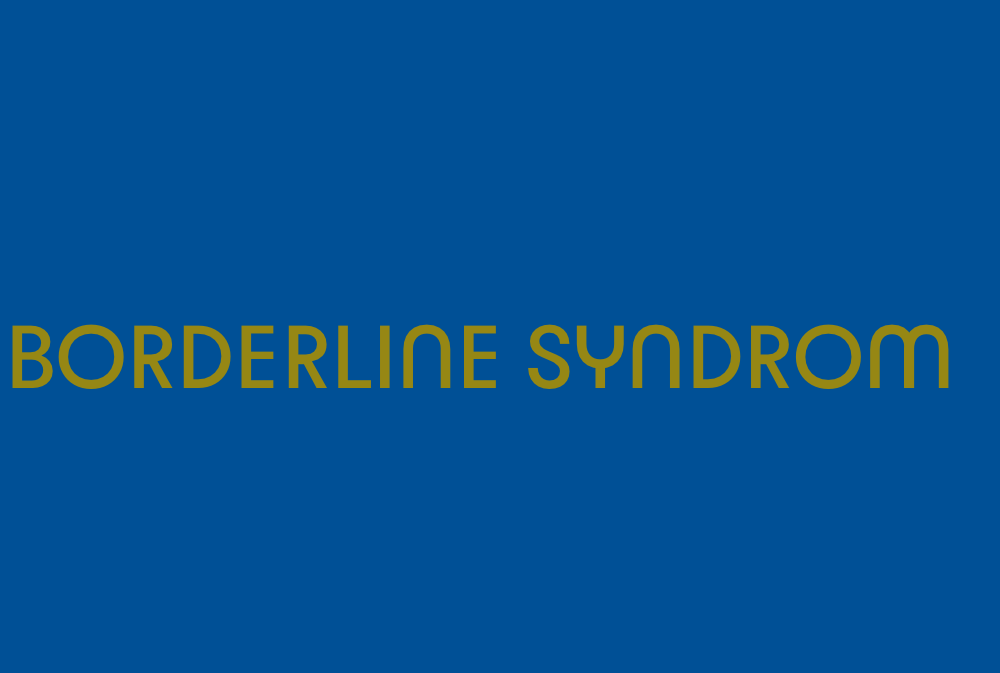Borderline Disorder
How Two People with BPD Can Successfully Date
Buckle up for a rollercoaster ride of love and challenges as two individuals with BPD navigate a romantic relationship.

Navigating a romantic relationship in which both individuals suffer from Borderline Personality Disorder can present unique challenges. The dynamics of such a relationship are often complicated, marked by intense feelings and deep connections.
However, the complexities of managing these intense feelings and maintaining stability within the relationship can be daunting. Understanding how to balance these intense emotions and foster healthy communication is essential.
But is love enough to overcome the hurdles that come with dating when both partners are grappling with BPD?
Key Takeaways
- Communication, empathy, and boundaries are vital in BPD-BPD relationships.
- Practice self-care, therapy, and mindfulness to manage shared symptoms effectively.
- Utilize 'I' statements, active listening, and emotional regulation techniques for better communication.
- Seek professional support, therapy, and prioritize mental health for a healthy relationship.
Challenges of BPD-BPD Relationships
In BPD-BPD relationships, navigating through intense emotions and conflicts due to shared symptoms can present significant challenges. The inherent traits of borderline personality disorder, such as insecurity, low self-esteem, and difficulties in emotional regulation, are magnified when both partners share these struggles. Communication becomes a crucial aspect in managing these challenges. Open and honest discussions about individual needs, boundaries, and triggers can help prevent misunderstandings and alleviate tensions within the relationship.
Therapy and mindfulness practices are indispensable tools in navigating the complexities of BPD-BPD relationships. Seeking professional help not only provides a structured environment to address underlying issues but also equips partners with coping mechanisms and strategies to improve emotional regulation. Mindfulness practices, such as grounding techniques and meditation, offer moments of respite amidst the storm of intense emotions.
Prioritizing mental health and self-care is paramount for both individuals in a BPD-BPD relationship. Taking time for self-reflection, engaging in activities that promote well-being, and setting healthy boundaries are essential practices to support each other effectively through the challenges that arise.
Communication Strategies for BPD Partners

Effective communication between partners with Borderline Personality Disorder (BPD) necessitates utilizing 'I' statements to express emotions without criticism or judgment. Active listening is crucial in understanding each other's perspectives and fostering empathy in the relationship.
Setting clear boundaries and respecting each other's needs can help manage conflicts and maintain a healthy dynamic. In our interactions, it's essential to practice patience, compassion, and validation to build trust and strengthen our bond.
Avoiding blame or criticism and instead focusing on open, honest communication can create a supportive and understanding environment where both partners feel heard and valued. By incorporating these communication strategies, we can navigate the challenges that may arise due to BPD and work towards a more harmonious and fulfilling relationship together.
Managing Intense Emotions Together
Navigating intense emotions together in a relationship requires a foundation of empathy, communication, and mutual support. When both partners have BPD, it's essential to understand each other's emotional triggers and responses. Practicing empathy enables a deeper connection and helps in validating each other's experiences. Effective communication plays a crucial role in expressing feelings, needs, and concerns in a constructive manner. It's important to actively listen, show understanding, and avoid judgment.
In managing intense emotions, emotional regulation techniques and coping strategies are valuable tools. Both partners can work on grounding exercises, mindfulness, or seeking professional help when needed. Setting boundaries is crucial to respect each other's space and needs. Being mindful of personal limits and communicating them openly fosters a healthy relationship dynamic. Additionally, prioritizing self-care is vital for overall well-being and emotional stability. By supporting each other in developing these skills and practices, partners can navigate intense emotions together more effectively.
Establishing Healthy Relationship Boundaries

Understanding and respecting each other's boundaries is essential for fostering a healthy relationship dynamic when both partners have BPD. In a relationship where both individuals are navigating the challenges of BPD, establishing healthy boundaries is crucial for maintaining stability and promoting mutual growth.
- Open Communication: Prioritizing open and honest communication allows both partners to express their needs, concerns, and expectations in a safe and understanding environment.
- Recognition of Triggers: Mutual understanding of each other's triggers and emotional responses can help in identifying potential conflicts before they escalate, fostering a more harmonious relationship.
- Self-Care Practices: Encouraging self-care practices and respecting individual space and autonomy is vital for promoting emotional well-being and ensuring that each partner can prioritize their mental health needs within the relationship.
Seeking Support and Therapy for BPD
Seeking therapy and support is a crucial step in managing a relationship when both partners have BPD, offering valuable tools for improving communication and emotional regulation. Individual therapy can help each person address personal challenges, such as the fear of abandonment, while couples therapy provides a safe space to work on relationship dynamics.
Mental health professionals can offer strategies for managing intense emotions and setting boundaries, essential for fostering a healthy relationship. It's important to support your partner in seeking help and actively engaging in therapy sessions to promote understanding and empathy. Therapy can equip partners with the skills needed to navigate conflicts constructively and build a foundation of trust.
Frequently Asked Questions
What Happens When Two BPD People Date?
When two individuals with BPD date, intense emotions and challenges may arise due to shared vulnerabilities. Emotional highs and lows can deepen the connection but may also lead to conflicts and impulsive behaviors. Understanding each other's struggles and practicing empathy can foster a unique bond.
Communication hurdles may surface due to hypersensitivity and emotional dysregulation. Setting boundaries, seeking therapy, and offering mutual support are essential in managing a relationship between two people with BPD.
Do Borderlines Attract Other Borderlines?
Yes, individuals with BPD often attract others with similar emotional patterns due to shared understanding and empathy. The unconscious draw towards familiarity can lead two people with BPD to each other.
Mutual support in managing BPD symptoms can strengthen their bond. Relationships between two individuals with BPD can be intense and challenging but potentially rewarding with mutual understanding.
Is It Worth Dating Someone With Bpd?
In contemplating the worth of dating someone with BPD, it's essential to recognize the unique challenges and rewards that come with such a relationship. Understanding the complexities involved and prioritizing communication and emotional regulation are crucial.
Seeking professional guidance and nurturing self-care practices can contribute to a healthier dynamic. While it may require extra effort, the potential for growth and connection in such relationships can be deeply fulfilling and transformative.
What Is the Trauma of Dating Someone With Bpd?
Dating someone with BPD can lead to emotional turmoil and challenges due to fear of abandonment, impulsive actions, and co-dependency tendencies. The trauma of such relationships often stems from blurred boundaries and intense emotional reactions.
Maintaining individuality becomes difficult amidst these dynamics. Seeking professional guidance and establishing clear boundaries are vital in navigating the complexities of dating individuals with BPD.
It's crucial to prioritize emotional well-being and self-care in such relationships.
Conclusion
In conclusion, dating two individuals with Borderline Personality Disorder can feel like navigating a rollercoaster of emotions. The intensity and challenges can be overwhelming at times, but with effective communication, emotional management, and setting boundaries, it's possible to create a healthy and stable relationship.
Seeking support and therapy are essential tools in managing the complexities of dating with BPD. Remember, with dedication and understanding, love can conquer all obstacles.
Val brings a wealth of knowledge and empathy to our team, crafting articles that touch the heart and enlighten the mind. As an expert writer, she dives deep into the subjects of BPD, offering informative and deeply relatable perspectives. Val’s contributions are instrumental in making complex psychological concepts accessible to our audience, helping to foster understanding and compassion.
Borderline Disorder
BPD Age Expectancy: Understanding Life Span with Borderline Personality Disorder
Yearning to understand why individuals with Borderline Personality Disorder have a reduced life expectancy of 20 years, uncover the intricate factors at play in this concerning reality.

We recently came across an astonishing statistic related to individuals with Borderline Personality Disorder (BPD) – a reduction in life expectancy of approximately 20 years. This finding underlines the significant impact BPD can have on a person’s life duration.
As we explore the factors influencing age expectancy in individuals with BPD, it becomes evident that a deeper understanding of these complexities is essential.
Let's uncover the intricate web of influences that contribute to this concerning reality and consider the implications for care and intervention.
Key Takeaways
- Cardiovascular issues impact BPD life expectancy.
- Suicide risk affects longevity in younger individuals with BPD.
- Substance abuse exacerbates BPD symptoms and complicates treatment.
- Impulsive behaviors pose threats to longevity and treatment success in BPD.
Factors Influencing BPD Life Expectancy
Factors that significantly impact the life expectancy of individuals with Borderline Personality Disorder (BPD) include cardiovascular issues and various lifestyle-related risk factors. Patients with BPD are at a heightened risk of experiencing a reduced life expectancy of approximately 20 years due to these factors.
Among the risk factors contributing to this shortened lifespan are obesity, sedentary lifestyle, poor diet, smoking, compromised sexual health practices, self-harm tendencies, substance abuse, and blood-borne viruses. These elements collectively increase the susceptibility of patients with BPD to life-shortening conditions.
Moreover, certain psychiatric medications prescribed for BPD management can exacerbate metabolic burdens, further influencing life expectancy. The presence of these risk factors underscores the importance of proactive interventions and holistic care approaches for patients with BPD.
Clinicians should be vigilant in recognizing the physical health challenges faced by individuals with BPD and provide tailored screenings and interventions to mitigate these risks and improve life expectancy. By addressing these factors comprehensively, healthcare providers can positively impact the longevity and well-being of patients with BPD.
Impact of Suicide on Life Expectancy

Premature death among individuals with Borderline Personality Disorder, primarily driven by the heightened risk of suicide, significantly impacts their overall life expectancy. The emotional distress experienced by individuals with BPD can lead to an increased likelihood of suicide attempts, further reducing their life expectancy. Suicidal behaviors are often used as coping mechanisms in response to extreme emotional experiences and feelings of mental emptiness, particularly prevalent in younger individuals with BPD. This heightened risk of suicide attempts not only affects the individual's immediate well-being but also has long-term consequences on their life expectancy.
| Suicidal Behaviors | Impact on Life Expectancy |
|---|---|
| High prevalence in BPD individuals | Reduces overall life expectancy |
| Linked to emotional distress | Increases risk of premature death |
| More common in younger individuals with BPD | Further shortens life span |
In managing Borderline Personality Disorder, addressing and mitigating suicidal behaviors is crucial for improving outcomes and extending the life expectancy of individuals with this condition.
Relationship Between BPD and Substance Use
The relationship between Borderline Personality Disorder (BPD) and substance use manifests as a complex interplay of coping mechanisms and exacerbation of symptoms. Individuals with BPD often turn to substance use as a way to cope with emotional distress and instability. This behavior can lead to a cycle of addictive behaviors, worsening the symptoms associated with BPD.
Addressing substance abuse is crucial in the treatment of individuals with BPD to improve overall outcomes.
Key Points:
- Substance use in individuals with BPD serves as a coping mechanism for emotional distress and instability.
- The presence of addiction in BPD can exacerbate symptoms and lead to a cycle of addictive behavior.
- Engaging in substance abuse can lead to impulsive behaviors and increased risks of physical health consequences for individuals with BPD.
Effects of Impulsive Behaviors on Longevity

Impulsive behaviors in individuals diagnosed with Borderline Personality Disorder can significantly impact their life expectancy by fostering risky activities that pose a threat to their longevity. These impulsive actions, such as reckless driving and gambling, can lead to premature death.
The propensity towards substance abuse, often heightened by impulsive tendencies, can result in severe physical health consequences, further shortening the lifespan of individuals with BPD. Moreover, using impulsive behaviors as coping mechanisms for emotional distress can worsen symptoms and potentially reduce life expectancy.
The combination of extreme emotional experiences and participation in risky activities due to impulsivity plays a crucial role in determining the longevity of individuals with BPD. Addressing these impulsive traits in treatment is essential, as they can lead to engaging in higher-risk activities that contribute to a decreased life expectancy.
Understanding the impact of impulsive behaviors on longevity is vital in providing comprehensive care for individuals with Borderline Personality Disorder.
Lifestyle Factors Affecting Life Expectancy
Lifestyle factors significantly impact the life expectancy of individuals diagnosed with Borderline Personality Disorder. When considering the factors that influence longevity in individuals with BPD, it becomes evident that various aspects of one's lifestyle play a crucial role.
- Physical Health: Obesity, a sedentary lifestyle, poor dietary choices, and smoking are common factors contributing to the reduced life expectancy in individuals with BPD.
- Psychiatric Medications: Certain medications used in the treatment of BPD can impose a metabolic burden on individuals, further impacting their life expectancy.
- Substance Use and Other Risky Behaviors: Poor sexual health practices, self-harm behaviors, substance abuse, and blood-borne viruses also contribute to the shortened life expectancy in individuals with BPD.
It is essential to address these lifestyle factors comprehensively to improve the overall health outcomes and life expectancy of individuals with Borderline Personality Disorder. By focusing on physical health, monitoring psychiatric medication effects, and addressing risky behaviors, healthcare providers can play a vital role in promoting longevity and well-being in this population.
Frequently Asked Questions
Can Someone With BPD Live a Normal Life?
We can affirm that individuals with BPD can lead fulfilling lives with proper treatment and support. By actively managing symptoms through therapy and medication, quality of life can significantly improve.
Cultivating healthy coping strategies and emotional regulation skills are crucial for a successful life with BPD. Building strong relationships, maintaining routines, and practicing self-care all contribute to enhanced daily functioning.
With the right interventions and strategies, individuals with BPD can achieve success and meaning in their lives.
What Is the Hardest Mental Disorder to Live With?
Living with the most challenging mental disorder poses significant obstacles to daily functioning. Emotional dysregulation, unstable relationships, and identity disturbances can create instability in various aspects of life. Impulsivity further complicates maintaining stability.
These complexities can lead to high distress levels and functional impairment, impacting interpersonal relationships and overall quality of life. Managing symptoms necessitates comprehensive treatment approaches, including therapy, medication, and support networks, to enhance well-being.
What Happens if BPD Is Left Untreated?
If left untreated, Borderline Personality Disorder (BPD) can lead to increased risk of suicide, persistent impairment, self-destructive behaviors, and worsening symptoms over time.
Without intervention, BPD can result in disability, morbidity, and negative outcomes like social dysfunction and relationship problems.
Lack of treatment may escalate risky activities and substance abuse, affecting overall quality of life and potentially decreasing life expectancy.
It's crucial to seek help and support for managing BPD effectively.
Is It Worth Living With Bpd?
Living with BPD can be challenging, but with proper support and treatment, it's possible to lead a fulfilling life.
We must prioritize self-care, therapy, and medication management to cope effectively.
By fostering self-awareness, healthy relationships, and coping strategies, we can mitigate the impact of BPD on our lives.
It's essential to seek help, build a strong support system, and embrace resilience in our journey towards overall well-being.
Conclusion
In conclusion, the complex interplay of factors affecting the life expectancy of individuals with Borderline Personality Disorder highlights the urgent need for comprehensive care and support.
While the impact of impulsive behaviors and substance use can significantly reduce longevity, addressing lifestyle factors and improving access to healthcare can lead to better outcomes.
By recognizing and addressing these challenges, we can strive towards improving the overall health and well-being of individuals with BPD.
Val brings a wealth of knowledge and empathy to our team, crafting articles that touch the heart and enlighten the mind. As an expert writer, she dives deep into the subjects of BPD, offering informative and deeply relatable perspectives. Val’s contributions are instrumental in making complex psychological concepts accessible to our audience, helping to foster understanding and compassion.
Borderline Disorder
What Characters in TV Show Have Bpd?
Uncover the intricate portrayals of characters with Borderline Personality Disorder in media, shedding light on the authenticity and representation – dive deeper into their complexities.

Have you ever considered how characters with Borderline Personality Disorder (BPD) are portrayed in the media?
The depiction of these individuals often raises questions about authenticity and representation.
Exploring the nuances of their struggles and triumphs can offer valuable insights into the complexities of BPD.
Key Takeaways
- Characters in media depict intense emotions and fear of abandonment.
- Portrayals showcase struggles with identity, relationships, and self-destructive tendencies.
- Fictional characters with BPD traits provide insights into lived experiences.
- TV and film representations raise awareness and offer glimpses into BPD challenges.
Fictional Characters Representing BPD
Fictional characters portraying Borderline Personality Disorder (BPD) offer a unique lens through which to explore the intricacies of this complex mental health condition. BPD is characterized by unstable moods, behaviors, and relationships. In the realm of fiction, characters like Susanna from 'Girl, Interrupted,' Tony Soprano from 'The Sopranos,' and Rebecca Bunch from 'Crazy Ex-Girlfriend' often embody these traits.
These fictional portrayals provide a glimpse into the lived experiences of individuals with BPD. Through the lens of these characters, we witness the intense emotions, impulsivity, and turbulent relationships that are hallmarks of the disorder. Fictional characters such as Marnie Michaels from 'Girls' and Jim Moriarty from 'Sherlock' further illustrate the complexities associated with BPD.
Popular Characters With BPD Traits

Exploring popular characters across various media who exhibit traits associated with Borderline Personality Disorder reveals a diverse range of portrayals that highlight the complexities of this mental health condition. Characters like Harley Quinn, Clementine, and Anakin Skywalker are speculated to display characteristics such as intense emotions, fear of abandonment, impulsive behaviors, and struggles with identity and relationships. These portrayals often depict the internal mental battles and self-destructive tendencies that individuals with BPD may face.
The fear of abandonment, a core feature of BPD, is frequently showcased in these characters, influencing their actions and decisions. Their impulsive behaviors and challenges in maintaining stable relationships further emphasize the difficulties associated with this disorder. While these portrayals may not always be entirely accurate, they play a significant role in raising awareness about BPD, initiating important conversations, and fostering empathy towards those affected by the condition.
Notable BPD Characters in Media
Several notable characters in various TV shows and films vividly depict traits associated with Borderline Personality Disorder (BPD). These characters with borderline personality include Susanna from 'Girl, Interrupted', who struggles with relationships and intense emotions, and Tony Soprano from 'The Sopranos', who exhibits intense passion and substance abuse issues.
Additionally, characters like Rebecca Bunch from 'Crazy Ex-Girlfriend' and Meredith Grey from 'Grey's Anatomy' showcase struggles with identity and intense emotions that are commonly seen in individuals diagnosed with BPD. TV and film characters such as Carrie Mathison from 'Homeland' and Will Graham from 'Hannibal' further provide insights into the complexities of BPD. Finding a relatable character like Marnie Michaels from 'Girls' or Jim Moriarty from 'Sherlock' can help viewers understand the multifaceted nature of BPD.
Richard Harrow from 'Boardwalk Empire' and Patrick Bateman from 'American Psycho' are additional examples of characters that reflect aspects of Borderline Personality Disorder, offering a glimpse into the challenges faced by individuals with BPD in media.
Complex Characters With BPD

Transitioning from examining notable BPD characters in media, we now turn our focus to the portrayal of complex characters with Borderline Personality Disorder. When characters are diagnosed with borderline personality, their struggles with dependency issues are often magnified, leading to intense guilt and a constant battle to understand their identity and true self.
The feelings of being lost, abandonment, and loss are commonly depicted, mirroring real-life experiences of those with a BPD diagnosis. In media, these characters serve as mirrors to imitate life, offering a relatable lens through which audiences can validate their own emotions and challenges.
BPD Portrayals in TV and Film
Numerous TV shows and films have depicted characters with Borderline Personality Disorder, shedding light on the complexities of this condition in popular media. Characters such as Susanna from 'Girl, Interrupted,' Tony Soprano from 'The Sopranos,' and Marnie Michaels from 'Girls' portray individuals diagnosed with BPD, showcasing their struggles with identity, relationships, and difficulties in navigating everyday life.
These portrayals often highlight the emotional intensity and erratic behavior associated with BPD symptoms, offering viewers a glimpse into the challenges of living with this mental health condition. Additionally, characters like Jim Moriarty from 'Sherlock' and Meredith Grey from 'Grey's Anatomy' exhibit traits that resonate with BPD characteristics, contributing to a nuanced portrayal of individuals grappling with the complexities of their emotional and psychological well-being.
Through these representations, TV shows and films play a crucial role in raising awareness and fostering understanding of the nuances surrounding Borderline Personality Disorder in the realm of popular media.
Frequently Asked Questions
Which Fictional Character Has Bpd?
We can identify various fictional characters with BPD traits, such as Susanna from 'Girl, Interrupted,' Tony Soprano from 'The Sopranos,' and Carrie Mathison from 'Homeland.'
They exhibit intense emotions, impulsive actions, and relational struggles, mirroring BPD characteristics.
These portrayals offer valuable insights into the challenges faced by individuals with BPD and help raise awareness and understanding about this condition.
Why Is BPD Life Expectancy 27?
The idea that BPD life expectancy is 27 is a misconception. Factors like suicide risk, co-occurring conditions, and self-harm behaviors contribute to this misunderstanding.
Individuals with BPD don't have a reduced life expectancy solely due to the disorder. Proper treatment, therapy, and support can significantly improve their quality of life.
It's vital to challenge stigmas and myths surrounding BPD to provide accurate information and support.
What Superhero Has Borderline Personality Disorder?
We believe The Hulk from Marvel Comics exhibits traits of Borderline Personality Disorder. His struggles with intense emotions, identity issues, and self-destructive tendencies mirror common experiences of individuals with BPD.
The character's portrayal resonates with those facing trauma, isolation, and emotional control challenges.
Through The Hulk, we witness a compelling exploration of complex emotions and inner demons, shedding light on the nuanced nature of Borderline Personality Disorder.
What Does a BPD Episode Look Like?
During a BPD episode, individuals may experience intense mood swings, from extreme happiness to deep despair, often triggered by perceived abandonment or rejection. These episodes can lead to impulsive and risky behaviors like substance abuse or self-harm, as well as feelings of emptiness, identity confusion, and distorted perceptions of reality.
Managing emotions becomes challenging, with manifestations of intense anger, aggression, or hostility towards oneself or others. Maintaining relationships during these episodes can be particularly difficult.
Conclusion
In conclusion, characters with Borderline Personality Disorder offer a unique perspective on mental health struggles, relationships, and personal identity. Through their complex portrayals in media, they challenge stereotypes and encourage empathy towards those dealing with BPD.
These characters serve as mirrors reflecting the inner turmoil and emotional rollercoaster that individuals with the disorder often face. Their stories remind us of the importance of understanding, acceptance, and support in navigating the challenges of mental health.
Val brings a wealth of knowledge and empathy to our team, crafting articles that touch the heart and enlighten the mind. As an expert writer, she dives deep into the subjects of BPD, offering informative and deeply relatable perspectives. Val’s contributions are instrumental in making complex psychological concepts accessible to our audience, helping to foster understanding and compassion.
Borderline Disorder
What Does Age Regression in BPD Reveal About Coping Mechanisms?
Get ready to unravel the intricate connections between age regression and BPD, delving into a complex coping mechanism with profound implications.

When facing deep emotional turmoil, individuals with Borderline Personality Disorder (BPD) may resort to age regression as a strategy for dealing with their feelings. This conduct, often linked to the quest for consolation and security, demonstrates a complex set of behaviors that necessitates additional analysis.
Understanding the nuances of age regression in BPD can shed light on the intricate dynamics at play and pave the way for effective interventions.
Key Takeaways
- Age regression in BPD is a coping mechanism against trauma and stress.
- Triggers include relationship conflicts, seeking comfort from toys, and fear of rejection.
- Coping mechanisms involve trauma exploration, Cognitive Behavioral Therapy, and seeking support.
- Professional help includes DBT, CBT, therapy for guidance, and enhancing emotional regulation skills.
Understanding Age Regression in BPD
In our exploration of Age Regression in BPD, it becomes evident that understanding this coping mechanism is crucial in navigating the complexities of Borderline Personality Disorder.
Age regression in BPD is a coping mechanism that manifests in adults reverting to behaviors more typical of children. This regression serves as a defense mechanism, shielding individuals from trauma, stress, and anxiety that overwhelm them in adult situations. The fear of rejection and intense emotional distress in BPD can trigger this regression, leading individuals to seek solace in a perceived safer and more protective time.
For those with BPD, the emotional distress can create trigger points that intensify feelings of abandonment and vulnerability, prompting the retreat into a state of regression. This coping mechanism can provide temporary relief from overwhelming emotions but may hinder personal growth and effective problem-solving.
Understanding the dynamics of age regression in BPD is vital for clinicians and individuals alike to address the root causes of this behavior and work towards healthier coping strategies.
Triggers and Manifestations of Age Regression

Triggers and manifestations of age regression in individuals with BPD reveal profound insights into the coping mechanisms employed in response to emotional distress and perceived threats to safety.
When faced with relationship conflict, perceived rejection, or intense emotional distress, individuals with BPD may exhibit childlike behaviors such as baby talk, seeking comfort from toys, temper tantrums, and regression in basic activities. These manifestations of age regression can serve as coping mechanisms to shield individuals from traumatic memories, stress, and anger.
Anxiety and fear of rejection in BPD can prompt a return to a time when they felt safer and protected, leading to a mental age that differs from their actual age. Understanding these triggers and manifestations is crucial in fostering healthy relationships and developing strategies to address the underlying issues contributing to age regression in individuals with BPD.
Coping Mechanisms for BPD Age Regression
When individuals with BPD experience age regression, understanding effective coping mechanisms becomes essential in managing their emotional responses and maintaining stability in challenging situations. Age regression might manifest in regressive behaviors such as childish actions and seeking safety in past memories.
To cope with BPD age regression, individuals can:
- Address Underlying Causes: Exploring the history of trauma or triggers that lead to age regression can help in understanding and managing regressive behaviors effectively.
- Utilize Cognitive Behavioral Therapy: Engaging in therapy sessions that focus on cognitive restructuring and behavior modification can assist in developing healthier coping strategies and breaking the cycle of age regression.
- Seek Support: Surrounding oneself with a supportive network of friends, family, or mental health professionals can provide emotional guidance, reassurance, and encouragement to seek professional help when needed.
Supporting individuals with BPD and age regression involves empathy, patience, and understanding to help them navigate through challenging emotional experiences.
Professional Help and Therapy Options

Seeking professional guidance and therapy options is crucial for individuals with BPD experiencing age regression, providing essential support in managing emotional distress and developing effective coping strategies. When addressing age regression in BPD, it is vital to consider therapeutic interventions like Dialectical Behavior Therapy (DBT) and Cognitive Behavioral Therapy (CBT). These approaches equip individuals with coping mechanisms to handle emotional distress and reduce the occurrence of age regression behaviors. Professional intervention can offer the necessary support, guidance, and tools to tackle the underlying issues contributing to age regression. Through therapy, individuals can develop healthier coping strategies and enhance their emotional regulation skills to minimize age regression episodes. By engaging in therapy, individuals with BPD can work towards improving their mental health and overall well-being.
| Therapy Type | Benefits |
|---|---|
| Dialectical Behavior Therapy (DBT) | Equips individuals with coping mechanisms for emotional distress and age regression. |
| Cognitive Behavioral Therapy (CBT) | Helps reduce the occurrence of age regression behaviors and enhances coping strategies. |
Management Strategies for BPD Age Regression
Addressing emotional dysregulation and triggers that contribute to age regression in individuals with BPD is essential in developing effective management strategies. When dealing with age regression in Borderline Personality Disorder, it's crucial to implement the following strategies:
- Developing Coping Skills: Cognitive Behavioral Therapy (CBT) can assist individuals in learning how to manage their emotions and behaviors when they regress to a younger mental state. This can aid in preventing prolonged regression episodes and improve overall functioning.
- Seeking Professional Intervention: Professional help is vital in identifying and addressing the underlying issues that lead to age regression in BPD. Therapists can provide targeted interventions to help individuals navigate through triggers and develop healthier coping mechanisms.
- Creating a Supportive Environment: Establishing a supportive and understanding environment is key to managing age regression episodes. Patience and empathy from those around the individual can help them feel safe and secure, reducing the likelihood of regression and promoting emotional stability.
Frequently Asked Questions
What Does BPD Age Regression Look Like?
BPD age regression can involve behaviors like baby talk, seeking comfort from toys, or displaying childlike reactions to stressors. It may manifest as a mental or emotional retreat to a time of feeling protected and secure.
Individuals with BPD may exhibit childish behavior, tantrums, or regress to a safer emotional state as a coping mechanism. This can result in a disconnect between chronological age and emotional maturity, triggered by situations intensifying fear of abandonment or emotional vulnerability.
Does BPD Get Better With Age?
Oh, does BPD get better with age? Absolutely, our experiences have shown that while BPD may not vanish entirely, many of us do see improvements over time.
Through therapy, support, and personal growth, we've learned to manage our symptoms more effectively. It's a journey, but with age comes wisdom and skills that help us navigate life's challenges in a healthier way.
What Does a BPD Episode Look Like?
During a BPD episode, individuals may experience intense emotional dysregulation. This can lead to impulsive behaviors and unstable relationships. Extreme mood swings, anxiety, and a fear of abandonment are common features. Self-harm, suicidal thoughts, feelings of emptiness, and identity disturbance may also be present. Anger outbursts, dissociation, and a distorted sense of self can manifest. Heightened sensitivity to rejection, criticism, or abandonment triggers intense emotional reactions.
This combination of symptoms can significantly impact daily functioning and relationships. It is important for individuals with BPD to seek professional help and support to manage these challenging experiences effectively.
What Is the Borderline Rage Cycle?
In the Borderline Rage Cycle, intense emotions spiral out of control, triggering explosive anger and impulsive actions. Perceived rejection or abandonment often kickstarts this turbulent cycle, leading to destructive behavior and strained relationships.
Managing this cycle is vital in treating Borderline Personality Disorder, fostering emotional stability and preventing harm. Understanding the patterns and triggers helps navigate these turbulent waters and cultivate healthier responses to intense emotions.
Conclusion
In conclusion, navigating age regression in BPD requires understanding, patience, and support. Just like a ship finding its way through stormy waters, individuals with BPD can learn to steer through intense emotions with the right tools and guidance.
By embracing therapy and developing coping strategies, they can weather the challenges of age regression and emerge stronger on the other side. Together, we can navigate this journey towards healing and emotional stability.
Val brings a wealth of knowledge and empathy to our team, crafting articles that touch the heart and enlighten the mind. As an expert writer, she dives deep into the subjects of BPD, offering informative and deeply relatable perspectives. Val’s contributions are instrumental in making complex psychological concepts accessible to our audience, helping to foster understanding and compassion.
-

 Divorcing a Partner with Borderline4 weeks ago
Divorcing a Partner with Borderline4 weeks agoUnderstanding Borderline Personality in Divorce
-

 Borderline Personality1 month ago
Borderline Personality1 month agoStories of Hope: Triumph in BPD Relationships
-

 Managing or Understanding BPD4 weeks ago
Managing or Understanding BPD4 weeks agoHow Does a Borderline React to No Contact
-

 Borderline Personality1 month ago
Borderline Personality1 month agoBPD Experiences: Insights and Coping Techniques
-

 Borderline Personality1 month ago
Borderline Personality1 month agoBorderline Personality Disorder (BPD) Explained
-

 Divorcing a Partner with Borderline4 weeks ago
Divorcing a Partner with Borderline4 weeks agoHow to Navigate Divorce with a Borderline Personality Disordered Spouse
-

 Managing or Understanding BPD4 weeks ago
Managing or Understanding BPD4 weeks agoHow to Communicate With Someone Who Has Borderline Personality Disorder
-

 Managing or Understanding BPD4 weeks ago
Managing or Understanding BPD4 weeks agoHow to Spot the 4 Types of Borderline Personality Disorder














